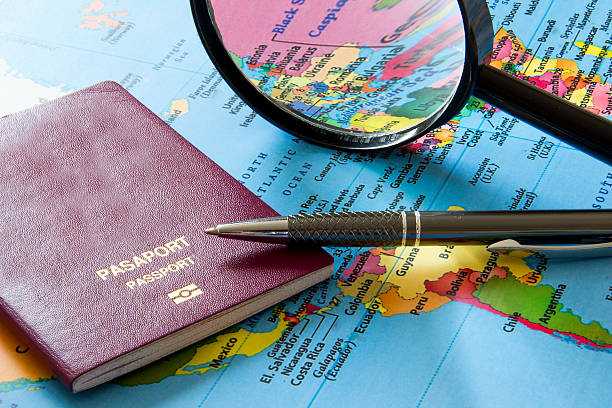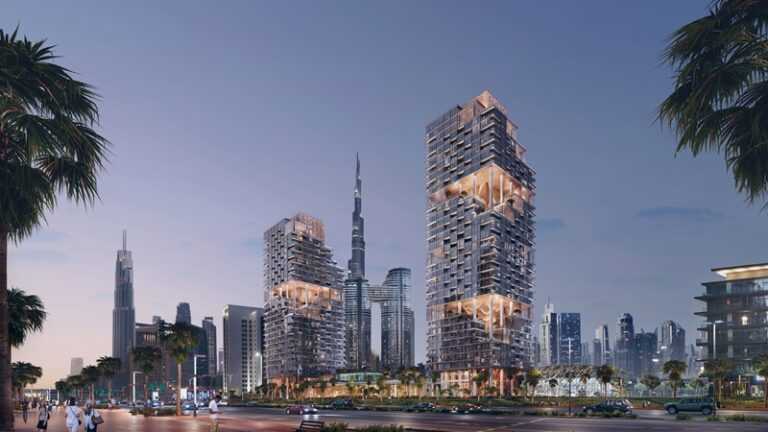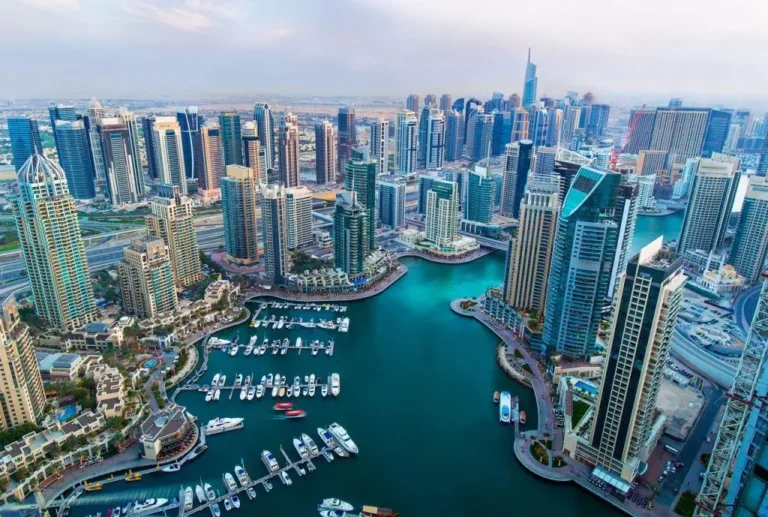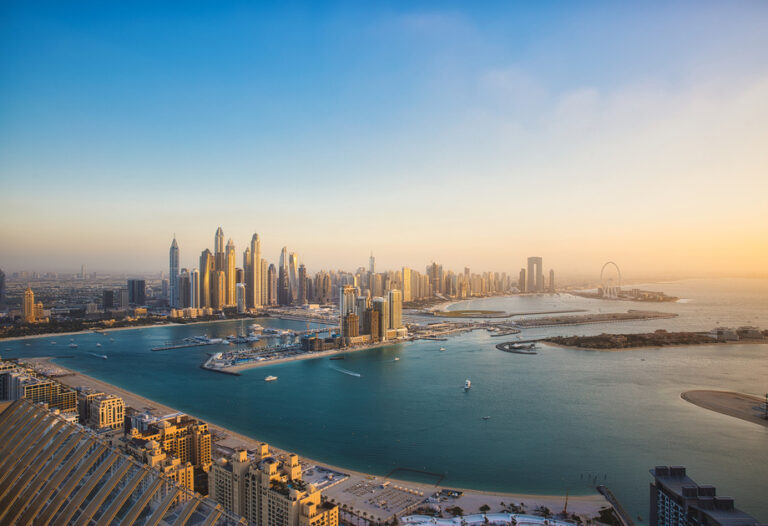How to Obtain a Visa and Residency in Dubai: A Comprehensive Guide to UAE Residency

Dubai, a luxurious metropolis renowned for its futuristic architecture and boundless business opportunities, is also an ideal destination for building a new life while enjoying a high standard of comfort, safety, and tax benefits. A UAE residence visa allows legal residency in the UAE, specifically in Dubai, for several years, and anyone who meets specific requirements can apply for one.
Residency in Dubai is available to various groups of foreigners, including investors, entrepreneurs, skilled professionals, and retirees seeking an ideal location for a peaceful and prosperous life. Depending on the type of long-term residency visa issued, it permits legal stay in the UAE for 2 to 10 years, enabling individuals to work as employees or independent professionals, start businesses, and access world-class healthcare and education systems.
The visa application process is straightforward, involving key steps such as submitting an application, document verification, and receiving a resident ID card. If you dream of a comfortable life in Dubai, this guide will explain how to obtain a UAE residence visa. We’ll cover all the essential details: the main reasons to become a UAE resident, the benefits of living in Dubai, visa categories for foreigners, and much more.
Why Become a UAE Resident: The Advantages of Living in Dubai
Dubai seamlessly blends cutting-edge technology, comfortable living, and limitless opportunities for growth. UAE residency status opens the door to a stable and prestigious future, allowing you to live in one of the world’s most dynamic countries and enjoy its numerous benefits.
Here are the key advantages of living in Dubai:
Tax Benefits: The UAE has no personal income tax, enabling residents to retain a significant portion of their income and investments.
Access to World-Class Healthcare and Education: Dubai’s hospitals employ top specialists, and the emirate hosts international schools and universities offering European, British, and American curricula.
High Level of Safety: Dubai is one of the safest cities globally, with low crime rates, strict laws, and an efficient law enforcement system.
Modern Infrastructure: The city is known for its advanced transportation systems, iconic skyscrapers, the world’s largest shopping and entertainment complexes, global business hubs, innovative cultural and sports facilities, and more.
Cultural Diversity: Home to over 200 nationalities, Dubai offers a welcoming environment where foreigners can easily adapt, find international communities, and maintain their cultural traditions.
These are just some of the benefits of obtaining residency in Dubai. A residence visa provides long-term stability and investment opportunities. Residents can legally reside in the UAE for 2 to 10 years, with the option to renew, and gain legal status to conduct business or work in the country. They also gain access to banking services—such as opening accounts, securing loans, and investing—and the ability to purchase property on favorable terms. A UAE residence visa also allows you to relocate your family.
Safety and Infrastructure
The comfort and well-being of Dubai’s residents and visitors are top priorities, making safety a key focus. For several years, the emirate has ranked among the world’s top 10 safest cities. Surveillance cameras are installed throughout Dubai, ensuring order on the streets 24/7. The city is safe to navigate both day and night.
Dubai boasts world-class infrastructure, including a metro system, buses, taxis, and high-speed highways. Modern residential complexes coexist harmoniously with business hubs, eco-friendly projects, major shopping centers, and other facilities.
This combination of factors makes Dubai an ideal city for comfortable living, business, and investment. UAE residency status not only ensures a high quality of life but also provides stability and confidence in the future.
Cultural Diversity and Education
Dubai is a cosmopolitan city, home to people from dozens of nationalities. It’s an excellent destination for foreigners due to its high level of tolerance, widespread use of English, and a well-developed international business community.
Many are curious about how to obtain UAE residency for educational purposes. Dubai is home to six universities ranked in the global QS World University Rankings. Students can receive scholarships of up to $15,000 annually, work permits for two years after graduation, and relatively affordable tuition compared to other prestigious global universities.
Visa Categories for UAE Residency
There are several pathways to becoming a UAE resident. The United Arab Emirates offers various types of residence visas depending on the purpose of stay, such as investment, employment, business, education, or retirement.
Here are the main categories of UAE residence visas and their requirements:
Business Owner Residency Visa: To qualify, you must register a company in one of the UAE’s free economic zones or establish a local business. The type of business activity is not restricted.
Investor Residency Visa: One of the most popular ways to obtain UAE residency, this visa is available to citizens of any country under 60 who purchase property worth at least AED 750,000.
Employee and Student Residency Visa: Foreigners who secure employment with a UAE company and sign an official contract, or students admitted to a UAE university, are eligible.
Freelancer Residency Visa: IT specialists, marketers, designers, and other freelancers can apply by registering in one of Dubai’s free zones and providing proof of professional experience.
Retiree Residency Visa: Available to individuals over 55 who own property worth over AED 1 million or have savings of the same amount. A monthly income exceeding AED 20,000 is also required.
Next, we’ll explore how to obtain a Dubai residence visa through business or property investment, as well as employment.
Investment Visas
For those interested in obtaining UAE residency through investment, consider the following visa categories:
10-Year Golden Visa: Granted for purchasing property worth at least AED 2 million.
3-Year Visa: Requires a minimum property investment of AED 750,000. If purchasing through a mortgage, at least 50% of the property’s value must be paid.
Business Investor Visa: Requires a minimum investment of AED 2 million in a new or existing UAE business, along with proof of ownership and annual tax payments of at least AED 250,000.
For all investment categories, funds must be personal and not borrowed.
Employment Visas
Employment is another popular route to obtaining a UAE residence visa. These visas are typically valid for 2–3 years, with the option to renew, and are often sponsored by employers.
The process involves several steps: obtaining a work permit (requested by the employer), receiving an entry visa, undergoing a medical examination upon arrival in the UAE, submitting documents for the residence visa, and obtaining a resident ID card.
How to Obtain a Dubai Residence Visa: Step-by-Step Process
Obtaining a UAE residence visa can be complex for those unfamiliar with long-term residency applications in other countries. However, understanding the process and seeking professional assistance can ensure success.
Step-by-Step Guide to Obtaining a Dubai Residence Visa Through Property Purchase:
Contact a real estate agency to select a property that meets visa requirements and fits your budget.
Purchase property worth at least AED 750,000 for a 2-year visa or AED 2 million for a 10-year visa.
Register ownership with the Dubai Land Department (DLD) and obtain a Title Deed.
Obtain a certificate of no criminal record from UAE police (for a 2-year visa).
Undergo a medical examination at an approved medical center.
Prepare the required documents for the visa application.
Submit the residence visa application to the General Directorate of Residency and Foreigners Affairs (GDRFA) and pay the administrative fees.
Receive a residence visa as a stamp in your passport.
Provide fingerprints and photos for the Emirates ID card.
Alternative Method: Employment
To obtain residency through employment, the employer submits a work permit application to the Ministry of Human Resources and Emiratisation (MOHRE). If approved, MOHRE issues a Work Permit, allowing the employee to enter the UAE for visa processing. The employee receives a 60-day entry visa from GDRFA, during which they must complete a medical examination, submit residence visa documents, and obtain an Emirates ID.
Dubai Retiree Visa: Residency for Pensioners in the UAE
The UAE retiree visa is an option for long-term residency in Dubai for individuals over 55. Launched in 2020 under the “Retire in Dubai” program, it offers a 5-year residence visa, granting access to high-quality healthcare, advanced infrastructure, comfortable housing, and more.
To apply for a retiree visa, submit the following to GDRFA:
A letter from a local bank confirming a deposit of at least AED 1 million for two years or a Title Deed proving property ownership.
Original passport.
Digital photo.
Medical insurance.
Proof of a Dubai residential address.
Upon document approval, applicants undergo a paid medical examination, including blood tests and a chest X-ray.
As the retiree visa application process typically takes no more than 15 working days, there’s no need to apply before reaching 55.
Retiree Visa Requirements
To qualify for the Dubai retiree visa, applicants must:
Be at least 55 years old.
Have a monthly income of at least AED 20,000.
Own property in Dubai worth at least AED 1 million (not under a mortgage, incomplete, or exceeding three properties).
Hold an AED 1 million deposit in a Dubai bank for two years.
Retirees can sponsor their spouses and unmarried children for residency.
How to Relocate and Become a Dubai Resident
Many aspiring UAE residents are unsure how to become a Dubai resident, where to start, or what steps to follow. This detailed guide provides a clear roadmap for relocating to the UAE.
Step-by-Step Guide to Obtaining Dubai Residency and Relocating:
Choose the Right Visa Type: Select a visa category (e.g., property purchase or employment) that suits your situation.
Obtain an Entry Visa: For employment, the employer applies for a work permit and entry visa. For property purchases, apply for an entry visa through the DLD after completing the transaction.
Undergo a Medical Examination: Upon arrival, complete a medical exam, including tests for infectious diseases and a chest X-ray.
Apply for a Residence Visa: Submit the residence visa application to GDRFA.
Obtain an Emirates ID: Apply for the resident ID card, providing documents and biometric data.
Find Housing: If residency isn’t obtained through property purchase, rent or buy a home in popular areas like Dubai Marina or Palm Jumeirah.
Get a Local SIM Card: Purchase a SIM card from local providers like Etisalat or Du for communication.
Learn Local Laws and Customs: Study UAE laws, traditions, and cultural norms to live comfortably and avoid misunderstandings.
Living in Dubai: Benefits and Challenges for Residents
Thousands of foreigners worldwide are drawn to Dubai’s high safety standards, quality healthcare, cultural diversity, advanced infrastructure, and comfortable living. However, life in the UAE can present challenges for residents.
Before researching how to become a Dubai resident, consider both the benefits and drawbacks. Life in Dubai can be expensive, with high costs for rent, private schools, and medical insurance. The hot climate, with summer temperatures often exceeding 40°C, can also be challenging. Additionally, strict public behavior rules must be followed.
If these challenges are manageable, a residence visa is a wise choice, offering greater comfort. Residents can relocate their families, open bank accounts, purchase property, and more.
Adaptation Challenges
One of the main adaptation challenges is the high cost of living. Renting an apartment in Dubai Marina can cost AED 8,000 monthly, while international school fees may start at AED 40,000 annually.
New residents may also struggle with the UAE’s strict laws, which prohibit offensive gestures, filming others, public displays of affection, criticizing the government, dancing in public, or driving a dirty car.
For retirees, the hot climate and costly medical insurance (priced based on age and health) can complicate adaptation.
When planning to relocate to Dubai, research thoroughly, connect with current UAE residents, and consider a tourist visit to familiarize yourself with the country. For specific details on required documents or visa processes, consult official UAE government websites.



